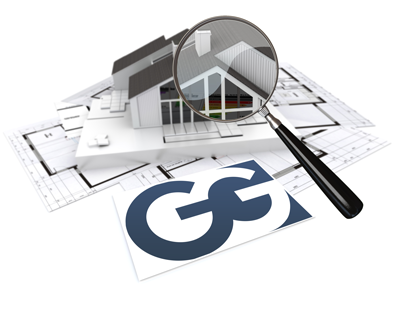Because purchasing a home is probably the biggest investment you will ever make, you’ll definitely want a team of professionals working with you throughout the process.

The Lawyer
When buying a home, you need a lawyer to protect your legal interests. It is critical to ensure that the property you are thinking of buying is protected by an appropriate Title Insurance policy. Title Insurance will protect you in the event that there are any building or statutory liens, charges, work or cleanup orders which are not discovered prior to closing. Your lawyer will review all contracts before you sign them, especially the Offer (or Agreement) to Purchase. Having a lawyer involved in the process from the onset will give you peace of mind and ensure that things go as smoothly as possible.
Remember that a lawyer:
- Should be a licensed fulltime lawyer and a member in good standing of the Law Society of Upper Canada
- Should be local and understand real estate laws, regulations and restrictions.
- Should have realistic and acceptable fees.
- Should be able and willing to explain things in plain language.
- Should be experienced with condominiums (if you are purchasing a condominium).
- Should specialize in Real Estate Law
The Real Estate Agent
No one will play a more important role in helping you find a home than your real estate agent. Your real estate agent’s job is to:
- Help you find the ideal home.
- Write an Offer of Purchase.
- Negotiate on your behalf to help you get the best possible deal when buying a home.
- Provide you with important information about the community, help you arrange and coordinate a home inspection and essentially save you time, trouble and money.
When the time comes to select a real estate agent, don’t be afraid to ask questions especially about any possible service charges. Vendors normally pay a commission to the agent but some agents charge buyers a fee for their services.
agent’s legal and ethical obligations, take a look at the Real Estate Canadian
Council of Ontario’s (RECO) website at http://www.reco.on.ca;
more specifically, you may wish to see the Ontario Real Estate and Business
Brokers Act, 2002 as well as the Code of Ethics. There are also private real estate associations
like CREA and OREA that publish their own code of ethics that it requires its members to
abide by.
 The Lender or Mortgage Broker
The Lender or Mortgage BrokerIf you haven’t already gone through the mortgage prequalification process, you will need to find a good lender to assist you during the purchasing process and for as long as you have your mortgage. Remember that many different institutions lend money for mortgages, such as banks, trust companies, credit unions, pension funds, insurance companies and finance companies. It’s a good idea to shop around and speak with more than one lender because terms and options will vary. Some people find it helpful to use a mortgage broker. Mortgage brokers are usually independent of any specific lending institution. Usually they are paid a commission by the lenders they use. Their role is to find the lender with the terms and rates that will best suit the buyer. To find a lender or mortgage broker, you can:
- Get a referral from your real estate agent or other professionals, family members or friends.
- Look in the Yellow Pages under Banks, Credit Unions or Trust Companies for a lender and under Mortgage Brokers for a broker.
- Contact the Canadian Association of Accredited Mortgage Professionals at 18884424625 or visit the Associations website at http://www.caamp.org.
The Home Inspector
You should consider having any home you are thinking of buying, whether it is a resale home or a brand new home, inspected by a knowledgeable and professional inspector.
An inspection by a home inspector is a visual inspection.
The home inspector’s role is to inform you about the property’s condition. The home inspector will tell you if something is not functioning properly, needs to be changed or is unsafe. You will also be informed of repairs that need to be made and maybe even where there may have been problems in the past.
Every inspection should include a visual assessment of at least the following:
- Foundation
- Doors and windows
- Roof and exterior walls
- Attics
- Plumbing and electrical systems (where visible)
- Heating and air conditioning systems
- Ceilings, walls and floors
- Insulation (where visible)
- Ventilation
- Septic tanks, wells or sewer lines (if inspector is qualified)
- Any other buildings such as a detached garage
- The lot, including drainage away from buildings, slopes and natural vegetation
- Overall opinion of structural integrity of the buildings
- Common areas (in the case of a condominium/strata or cooperative)
There is presently no mandatory certification and no legislated requirements for home inspectors to take any courses or to have passed any tests. Anyone can say that they are a home inspector. However, a good home and property inspector generally belongs to a provincial or industry association. For more information about the home inspection industry’s voluntary National Certification Program, visit the National Certification Authority’s website at http://www.ncaanc.com/.
Home inspector fees are generally in the $500 range and depend on the size and condition of the home.
The Insurance Broker
An insurance broker can help you with your insurance needs, including property insurance and mortgage life insurance. Lenders insist on property insurance because your property is their security for your loan. Property insurance covers the replacement cost of your home, so premiums may vary depending on its value.
Your lender may also suggest that you buy mortgage life insurance. Mortgage life insurance provides coverage for your family if you die before your mortgage is paid off. This type of insurance is often available through your lender, who then simply adds the premium to your regular mortgage payments. However, you may want to compare rates between both an insurance broker and your lender.
Be careful not to confuse property or life insurance with mortgage loan insurance, which may be required for highratio mortgages.
